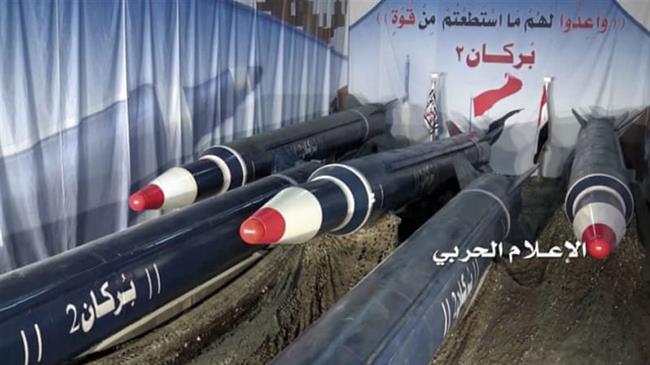
RNA - Yemen’s Joint Operations Command, in a statement released on Wednesday, announced that the long-range missiles struck the designated targets with great precision, Arabic-language al-Masirah television network reported.
Four blasts were heard in the central part of Riyadh, but there were no immediate reports of casualties or damage.
Saudi authorities later claimed that its air defense systems had intercepted the missiles in the skies over the capital.
A military spokesman for the Houthi Ansarullah movement, Colonel Aziz Rashed, said the missile attack marked “a new phase” and was revenge for Saudi airstrikes on Yemen.
“There will be more salvos until this enemy is deterred, understands the meaning of the Yemeni might and ceases its crimes,” he pointed out.
Separately, a child lost his life and a couple sustained injuries when a cluster bomb went off in the Razih district of Yemen’s mountainous northwestern province of Sa’ada.
Cluster munitions, which are banned by more than 100 countries, present an enormous danger to civilians.
Cluster bombs are banned under the Convention on Cluster Munitions (CCM), an international treaty that addresses the humanitarian consequences and unacceptable harm caused to civilians by cluster munitions through a categorical prohibition and a framework for action.
Yemeni forces inflict losses on Saudi mercenaries
Meanwhile, Yemeni troops and Popular Committees fighters dealt new blows to Saudi-backed militiamen loyal to Yemen's resigned president, Abd Rabbuh Mansur Hadi, in Saudi Arabia’s southwestern border region of Jizan.
A Yemeni military source said Yemeni forces carried out an ambush on the Saudi mercenaries in the region’s al-Amoud military base on Wednesday, killing and injuring scores of them.
Yemeni army soldiers and their allies also shot down two unmanned reconnaissance drones, and destroyed an M1 Abrams battle tank.
The Yemeni Ministry of Human Rights announced in a statement on March 25 that the Saudi-led war had left 600,000 civilians dead and injured since March 2015.
According to Press TV, the United Nations says a record 22.2 million Yemenis are in need of food aid, including 8.4 million threatened by severe hunger.
A high-ranking UN aid official recently warned against the “catastrophic” living conditions in Yemen, stating that there was a growing risk of famine and cholera there.
“People's lives have continued unraveling. Conflict has escalated since November driving an estimated 100,000 people from their homes,” John Ging, UN director of aid operations, told the UN Security Council on February 27.
Ging said cholera had infected 1.1 million people in Yemen since last April, and a new outbreak of diphtheria had occurred in the war-ravaged Arab country since 1982.
847/940